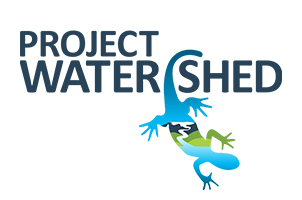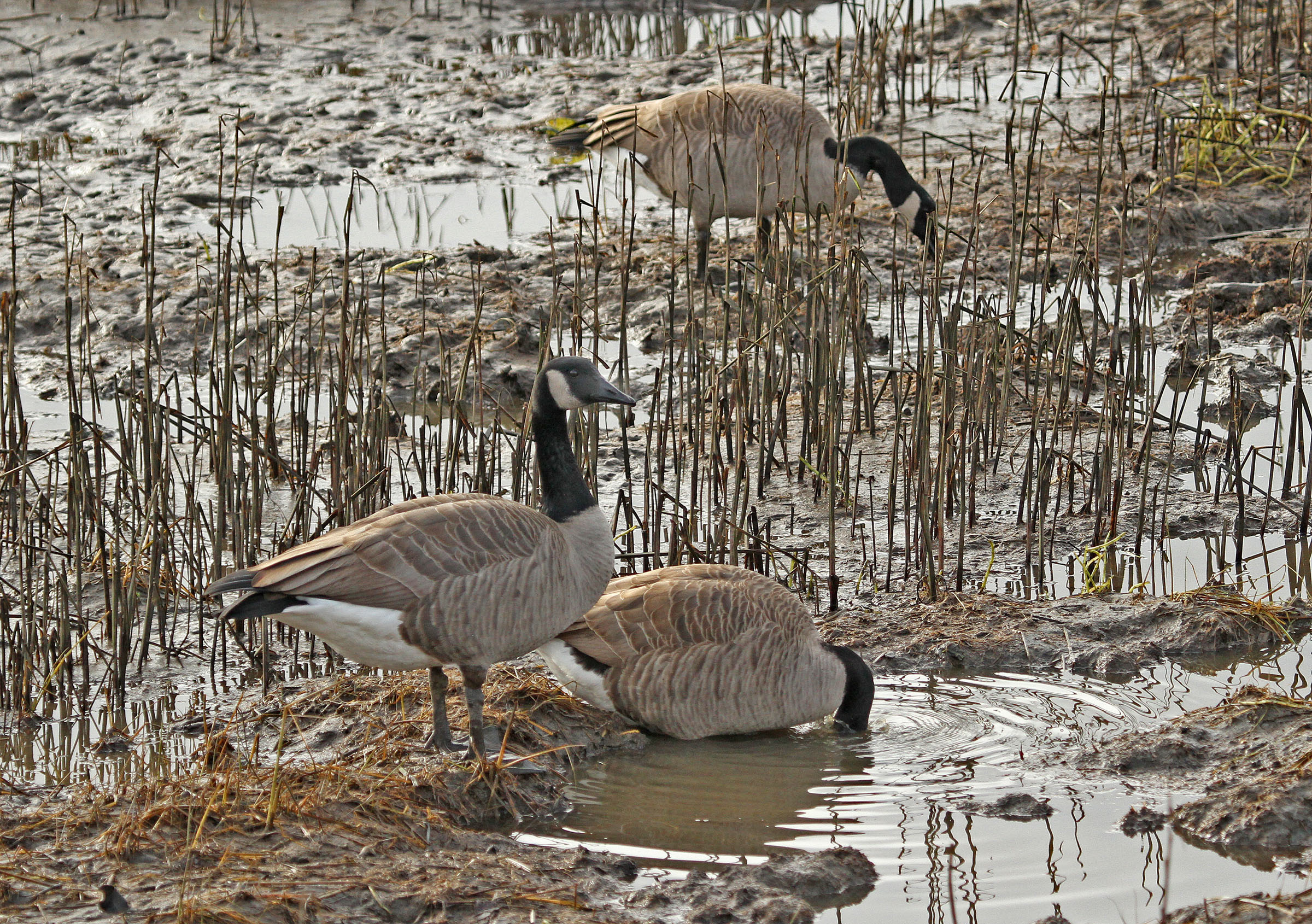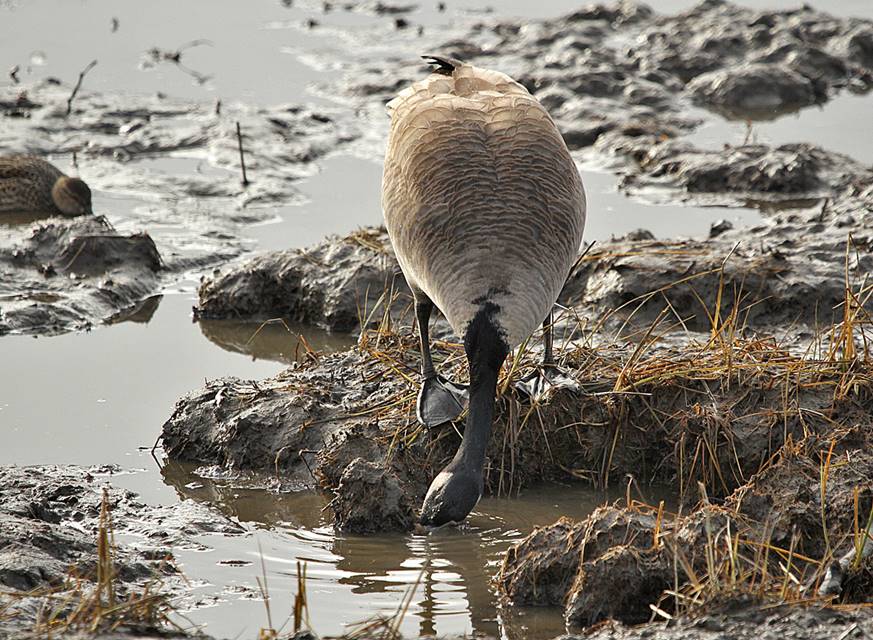The KFN Guardians are preventing rich soils from being eroded
The KFN Guardians, led by Cory Frank, have developed an eco-cultural restoration solution to utilize young alder, providing the needed strength and structure to hold the fencing in place while allowing salmon fry to move in and out of the area. Other goose-preferred plants such as arrowgrass will thrive in the absence of geese, and smaller birds such as red-winged black birds and kingfishers use the alder poles as perches.
The K’ómoks First Nation (Guardian Department) is very pleased to be partnered with the Guardians of Mid-Island Estuaries and the Pacific Salmon Foundation in estuary restoration. Salmon are the lifeblood of many Aboriginal Communities and without the habitat to help sustain salmon stocks as they migrate to the estuary we will all suffer in the decline of these stocks. The K’ómoks Estuary has fed our people for thousands of years and with the restoration work we are embarking on, and the work of many other community and volunteer groups, we can all benefit from this habitat restoration in the future.
Next year, the Guardians will begin the process of re-vegetating areas devoid of vegetation with sedges from nearby donor sites. Ongoing monitoring will measure re-growth and use of the estuary by salmon and other species. Tim Clermont, Guardians of Mid-Island Estuaries Society’s Executive Director, explained that the project will build resiliency in the estuary. “With habitat loss, warming seas, ocean acidification and overfishing, the salmon and future generations, need this healthy viable habitat to ensure resiliency within the estuary. We are fortunate that KFN and others are so committed to the health of natural habitats.”
For the past five years Project Watershed has been working hard to restore salt marsh and eelgrass habitats in the K’ómoks Estuary to historical abundance. The rising population of resident Canada geese can potentially jeopardize this restoration investment and the recovery of these habitats. Therefore, we are happy to see that a management strategy to deal with the overgrazing by geese is being pursued by the Guardians of the Mid-Island Estuaries society in our local estuary.
Human Resources
Related Posts
Gwen Janz
Meet our new Forage Fish Lead Biologist!
Eelgrass Update
In the fall our restoration team surveyed the three eelgrass beds which were planted with the help of our volunteers back in June. The beds are looking healthy!
Kus-kus-sum: End of Season Wrap-up
Now that we have put the Kus-kus-sum site to bed for the winter, we wanted to give you all a little update on how things progressed this season – lots happened!
Kate McKeown
Meet our new Forage Fish Technician!
Greenshores at Dyke Road Park – Reimagining a Park
On September 20 and 21, over 20 people were on site to help with planting at the Comox Valley Regional District’s (CVRD) Dyke Road Park redevelopment project.
Gartley Beach Green Shores for Homes Project
Project Watershed is teaming up with the CVRD and the Stewardship Centre for BC to do some shoreline restoration at Gartley Beach in Royston.



